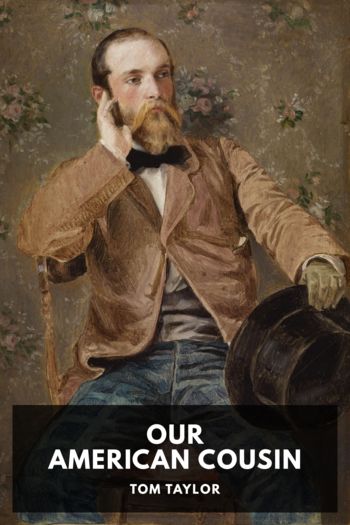Daughters of the Summer Storm by Frances Statham (best sci fi novels of all time .TXT) 📗

- Author: Frances Statham
Book online «Daughters of the Summer Storm by Frances Statham (best sci fi novels of all time .TXT) 📗». Author Frances Statham
The conde's dark eyes swept over her, and Maranta, disconcerted at his manner, stared at the ground. But the conde continued, "I shall wait here for a while, Maranta. But do not linger too long—or I shall come to find you."
She walked past him, her head held high, even though her cheeks were burning. Why did he have to embarrass her so? Somehow, with the condessa and Dona Isobel, it had not seemed so bad when they had stopped to take care of the necessities. She was almost sorry now that she had asked to come.
But then, Maranta thought of the condessa. And it seemed more urgent than ever to get to the shrine at Penha.
"I should tell you, menina," the conde said as they finished their lunch, "a little about the shrine.
"Many of the people who come to pray are simple, trusting people—unsophisticated in their knowledge. They clutter the altar with representations of any parts of the body they wish to have healed. You might see a foot of clay, or a heart, or any other. . . organ that needs attention—But they believe in miracles. For them, that is the important thing," he said, his voice suddenly taking on a harsh and condescending tone.
"And I, too, will pray for a miracle, senhor," Maranta's voice affirmed with a slight tremor.
"Then, come. Let us not waste any more time."
As soon as they reached the place, Maranta felt at peace. There was something comforting about the shrine high on the hill, with the wind blowing, making a slight whistling sound. And as she knelt before the statue, which was aged from the weather and the constant wind, Maranta forgot the objects on the altar, forgot all else but the condessa. Her lips moved silently, while the statue seemed to smile at her and give her courage.
The hand on her shoulder finally brought her mind back to her surroundings.
"It is growing late, menina. We must leave before darkness sets in." The conde's impatient words held no tinge of apology for having disturbed her.
He took Maranta's hand and led her toward the horses. As he lifted her upon the mare, Ruis looked into her eyes, and in a dry tone, he said, "And did you pray for yourself as well, Maranta?"
"Did I need to, senhor? With the great Count of Sorocaba protecting me?"
His lips tightened into a thin line, and he made no effort to reply to her impertinent question. Instead, he moved Diabo toward the road and began to canter, leaving Maranta to follow as best she could on the little mare.
The lamps were lit by the time they reached the casa. Dona Isobel stood at the door, and her worried frown lifted when the two came into sight.
No one noticed that Maranta could barely walk—for all eyes were on the condessa seated in the salon.
"Mãe," the conde greeted her with surprise. "You are feeling better?"
"Sim, Ruis. The doctor has given me permission to get up. I have rested in bed long enough."
It was a coincidence, Maranta thought. For it was too early for a miracle. Perhaps the condessa had not been so ill after all—just exhausted—and the trip to the shrine had been unnecessary. Although her soul did not protest the wasted journey, Maranta's body rebelled. It was an effort to get up the stairs by herself, and when Maranta saw the warm bath that Pará had prepared for her, she stumbled toward it.
Later as she sat painfully in the tub, Maranta wondered if this was why Ruis had suggested she pray for herself. And she was sorry that she had not done so.
The tray of food remained on the table—untouched. And the room was filled with silence. Not even Fado in his cage interrupted the quiet by as much as a chirp. Sighing, Maranta covered the cage and blew out the light.
The tears came slowly, staining the embroidered pillow cover, while her body ached from the long, hard journey into the hills. Never had she felt more alone—in a house of strangers. It was as if she had been swallowed up—completely forgotten by anyone who had ever spoken her name with love.
11
"Marigold. . . that was her name—Marigold Tabor."
The man stood at the long counter in Keppie's Tavern and ordered another mug of rum. "Robert Tabor was seeing her off today on the Beaufort—with those two foreign women. Promised to some Portugee bigwig on a coffee plantation in Brazil, I was told."
At the mention of the Tabor name, Shaun Banagher put down his mug. Chad, seated beside him, paled. He got up noisily from the table and began to say something to Shaun, but the auburn-haired man, interested in the conversation at the counter, motioned for Chad to be quiet. He reluctantly sat down again.
"No, it was the other twin," someone corrected. "Marigold is the one that married that fellow from the up country—her cousin—several weeks ago."
Chad, afraid to look at Shaun, closed his eyes and groaned.
"Now, I've got to hand it to that Robert Tabor," the second man continued, "Marrying his daughters off so well. One to coffee and the other to gold."
The first man scratched his head and replied, "I reckon so. Only if I had such beauties in my house, I'd be real slow to hand 'em over to some other man to enjoy—'specially that one with the golden hair."
The other men laughed at his comment and drank to his sentiment. But Shaun left his unfinished drink on the table and blindly headed for the door. Chad rushed to catch up with Shaun, but the three men weaving their way into the tavern impeded his progress.
"Shaun," Chad called. "Wait for me, man."
But Shaun, oblivious to everything but his own pain, kept





Comments (0)